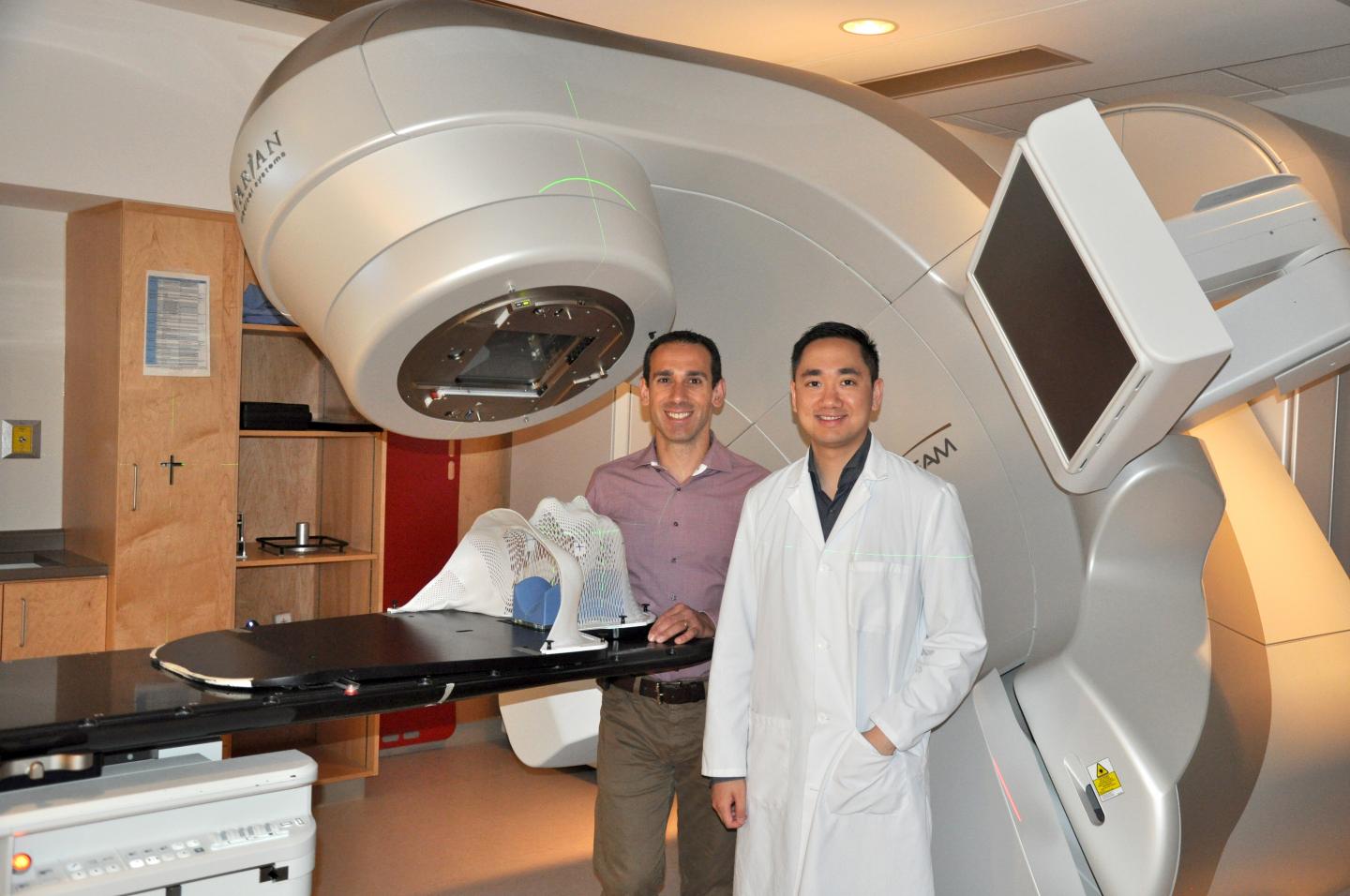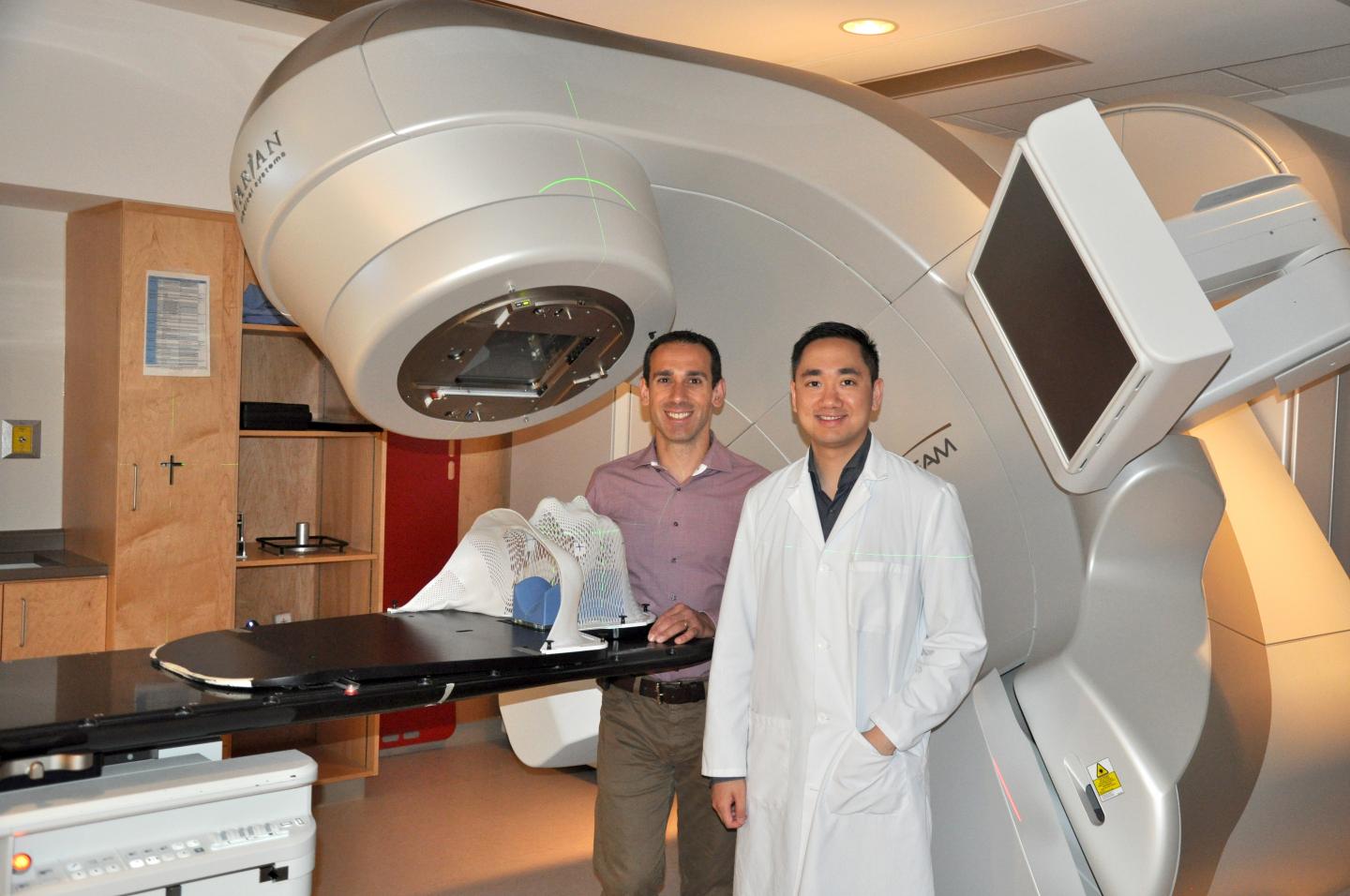
Credit: Lawson Health Research Institute
LONDON, ON – While palliative radiation therapy is used to ease pain in patients with advanced lung cancer, it often has adverse effects on the esophagus which leads to symptoms like heartburn and difficulty swallowing. Through the PROACTIVE clinical trial, Lawson Health Research Institute scientist Dr. Alexander Louie is testing new palliative radiation techniques to spare these effects on the esophagus and improve quality of life for lung cancer patients.
PROACTIVE first launched at the London Regional Cancer Program (LRCP) at London Health Sciences Centre (LHSC) in late 2016. It is now active at five centres across Canada with over 40 patients participating.
The clinical trial uses more precise radiation techniques to reduce the dosage of radiation to the esophagus or 'swallowing passage.' As a phase three randomized controlled trial, research participants are randomly selected to receive either standard palliative radiation or palliative radiation that uses these new techniques.
Patients are followed for one year after the completion of palliative radiation to assess and compare their ability to swallow food and drink, and to eat nutritiously. "By intentionally avoiding the esophagus, we hope to improve quality of life for these patients," explains Dr. Alexander Louie, also a radiation oncologist at LRCP. "By reducing negative effects to their swallowing passage, we hope to ease pain, build comfort and allow for a nutritious diet."
The research team will also look at a number of other outcomes including the cost-effectiveness of using these new radiation techniques.
PROACTIVE is funded by a Canadian Cancer Society Quality of Life Research Grant. "We're thankful to our supporters and Dr Louie's team for making this project possible. Enhancing the quality of life of those living with cancer is an important endeavour," says Jennifer Wilson, Director of Research Operations, Canadian Cancer Society. "We know that quality-of-life research has the potential to make a significant impact on the burden of cancer in patients, survivors and caregivers."
The study is also part of the Canadian Pulmonary Radiotherapy Investigators (CAPRI) group, a collaborative group of Canadian researchers who coordinate nationwide radiation clinical trials to improve outcomes for lung cancer patients.
"CAPRI was founded to enable clinical trials which offer new radiation treatments to current patients and improve the care of future patients by answering important research questions," says Dr. David Palma, CAPRI chair, Lawson scientist and radiation oncologist at LRCP. "CAPRI helps bring together investigators from across Canada to conduct nationwide trials like PROACTIVE in a timely manner."
###
Initiated in London, Ontario, CAPRI's creation was made possible by donations to London Health Sciences Foundation, along with research operating funds from the Ontario Institute of Cancer Research.
Lawson Health Research Institute: As the research institute of London Health Sciences Centre and St. Joseph's Health Care London, and working in partnership with Western University, Lawson Health Research Institute is committed to furthering scientific knowledge to advance health care around the world. http://www.lawsonresearch.ca
For more information, please contact:
Robert DeLaet
Communications & External Relations
Lawson Health Research Institute
T: 519-685-8500 ext. 75664
[email protected]
http://www.lawsonresearch.ca/news-events
Media Contact
Robert DeLaet
[email protected]
519-685-8500 x75664
@lawsonresearch
https://www.lawsonresearch.com/
Original Source
https://www.lawsonresearch.ca/new-radiation-techniques-could-improve-quality-life-lung-cancer-patients





